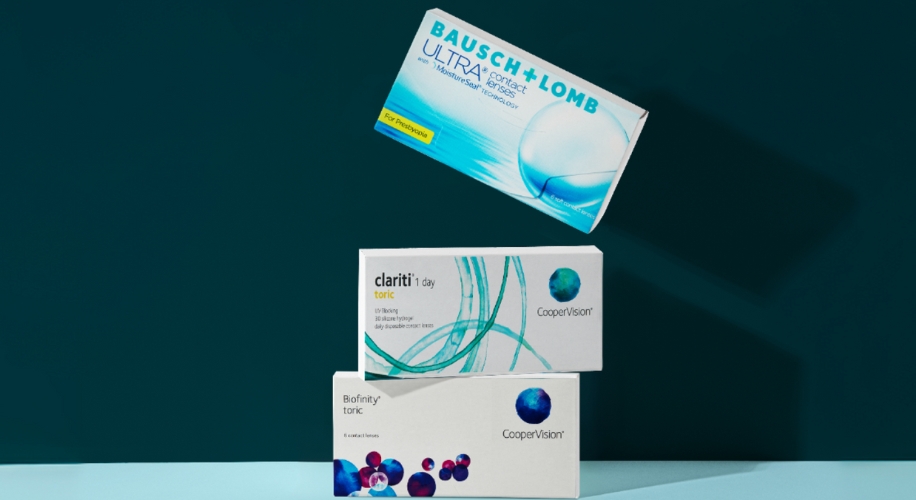What to Know About Contact Lenses for Your Child
As a parent, you want the best for your child’s vision and comfort. If your child has expressed interest in contact lenses, it’s essential to understand the benefits, considerations, and proper care involved. At Zenni, we are committed to helping you make an informed decision about your child’s eye care needs. This comprehensive guide covers everything you need to know about contact lenses for your child.

Benefits of Contact Lenses for Children
Here are some key benefits of contact lenses for children, highlighting why they can be a practical and effective option for young wearers:
- Enhanced Confidence and Self-Esteem: Contact lenses can boost their self-esteem by allowing them to participate in activities without worrying about their appearance or glasses slipping off.
- Improved Vision and Comfort: Contact lenses provide a wider field of vision and are less likely to be affected by weather conditions like rain or fog. They are also more comfortable during sports and physical activities, offering the freedom to move without the constraints of glasses.
- Convenience for Active Lifestyles: For children involved in sports or other physical activities, contact lenses can be more convenient than glasses. Daily disposable lenses, in particular, eliminate the need for cleaning and storage, making them an excellent option for busy schedules.
Considerations Before Making the Switch
Before switching your child to contact lenses, it’s essential to consider several important factors and seek guidance from your eye care professional:
- Age and Maturity: While there is no specific age requirement for contact lenses, it’s crucial to consider your child’s maturity level. They need to understand the importance of proper hygiene and be responsible enough to handle the daily care of contact lenses.
- Hygiene and Maintenance: Proper hygiene is critical when handling contact lenses. Your child must wash their hands thoroughly before inserting or removing lenses. They should also follow the recommended cleaning and storage guidelines to prevent eye infections.
- Eye Health and Comfort: Not all children are suitable candidates for contact lenses. An eye care professional will assess your child’s eye health, prescription, and overall suitability for contact lenses. It’s essential to have a thorough eye examination and follow the eye care professional’s recommendations.
Types of Contact Lenses for Children
- Soft Lenses: Soft contact lenses are made from flexible plastics that allow oxygen to pass through to the cornea. They are comfortable and easy to adapt to, making them a popular choice for children.
- Rigid Gas Permeable (RGP) Lenses: RGP lenses are sometimes necessary for specific eye conditions. While they offer excellent vision clarity, they may require a longer adjustment period compared to soft lenses.
- Daily Disposable Lenses: Daily disposable lenses are worn once and then discarded, eliminating the need for cleaning and storage. They are convenient and reduce the risk of eye infections, making them an excellent option for children.
- Two Week or Monthly Lenses: Two week or monthly lenses are designed to be worn for a specified period (either two weeks or a month) before being replaced. These lenses require daily cleaning and proper storage, but they are cost-effective and provide consistent vision correction. Regular cleaning and careful handling are essential to maintain eye health and prevent infections.

Ensuring Proper Care and Maintenance
When choosing contact lenses for children, it’s important to consider the various types available to find the best fit for their needs and lifestyle. Here are some common options:
- Establishing a Routine: Help your child establish a routine for inserting, removing, and cleaning their contact lenses. Supervise them initially to ensure they are following proper procedures.
- Regular Eye Exams: Schedule regular eye exams to monitor your child’s eye health and ensure their contact lens prescription remains accurate. Eye health can change over time, and regular check-ups are crucial.
- Addressing Discomfort: If your child experiences discomfort, redness, or blurred vision while wearing contact lenses, they should remove the lenses immediately and consult an eye care professional. It’s essential to address any issues promptly to prevent complications.
Parental Guidance and Support
As a parent, your guidance and support are vital in helping your child adjust to contact lenses. Educate them about the importance of proper hygiene and care, and be patient as they adapt to this new responsibility.

Transitioning to contact lenses can be a positive and empowering experience for your child. By understanding the benefits, considerations, and proper care involved, you can make an informed decision that supports your child’s vision and overall well-being. At Zenni, we are dedicated to providing high-quality eyewear solutions for all ages. For personalized guidance, consult with your eye care professional to ensure the best care for your child’s unique needs.


